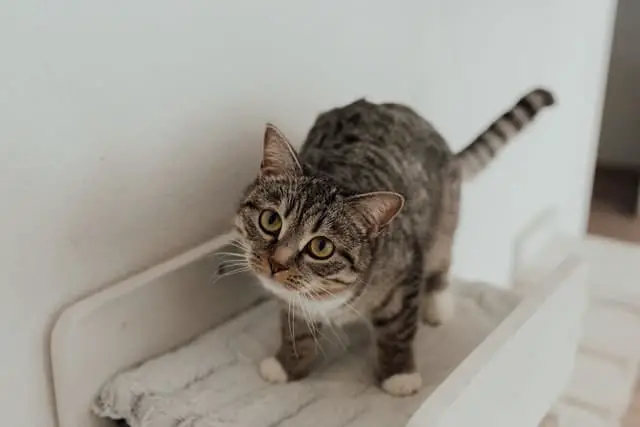How often does your little kitty approach the litter box? What to understand based on how many times the kitten pees, when it is normal and how to recognize any health problems.

‘Tell me how much it does and I’ll tell you how it is’: this could be the slogan to understand, based on the cat’s ‘urinary habits’ its state of health. It is in fact a good indicator of some pathology that can affect him both in the kidney and can be a behavior not linked to any health problem. So let’s see how often a cat should urinate and what we can mean based on how many times the cat pees.
Kitten urination: how often it is
In reality, when we are faced with an adult cat, who has been living with us for some time, it is easy to identify immediately if there are problems in the urinary tract because we know its physiological habits well.
But when it comes to a newborn kitten we must be careful to perceive any signal that its little body may send us : in this way we will be ready to face the problem and maybe solve it in a short time.
But how often should a kitten pee? There is obviously no written rule on the matter, as this is quite a personal factor. A kitten that feeds adequately and that absorbs water not only from the bowl but above all from food, should urinate about 1/2 ml of urine for every kg of weight .
Translated in terms of ‘times’ the number should be around 2-3 per day: it is obvious that any clear change from these numbers could set off an alarm bell.
How many times does the kitten pee: which means if they do it too often
If we often see the kitten approach the litter box or constantly find traces of its urine scattered around the house, we may start to worry. The cases of polyuria in the cat are not actually always a problem but rather a consequence: if the kitten drinks too much, he will have a greater need to urinate.
But unfortunately, in some cases, they can be a sign of some ongoing pathology, such as diabetes mellitus in cats , or some liver problem, hypercalcemia or even an infection if it is a female specimen.
Generally another symptom that accompanies excessive urination is pain when passing urine: if we see that our kitten suffers from peeing, it is likely that it is a bacterial infection or cystitis.
How often does the kitten pee: if they urinate too little
What if the problem is reversed? It is likely that a newborn kitten that has been removed from its mother early is not yet accustomed to urination, because it is not constantly stimulated.
As for the feces, also for the urine it is the mother cat who provides with continuous stimulation in the genital part: if we have to do it ourselves, we recommend light but constant massages to the belly of the feline.
But in the worst cases it could also be a sign of kidney stones which, like small pebbles, act as an obstacle to the cat’s normal urination. Another important sign to note are traces of blood also in the litter; finally it could be a renal failure or a real blockage or obstruction in the urinary level : in this case it is advisable to immediately alert the veterinarian.
Urination as marking or discomfort

Let’s not forget that cats, from an early age, always take an attitude to impose their presence, such as releasing traces of urine. While annoying and unhygienic, it is their way of marking territory. In fact, these are small amounts of urine that the cat releases to define its space and to leave a trace of its passage: ‘I’ve been here, know!’.
But unfortunately in other cases it can also be the outlet of a discomfort in the feline: in this way he is communicating that something is troubling him. Therefore, in addition to marking the territory, excessive urination could be one of the signs of stress in the cat : it is advisable to understand the causes to deal with it and solve it.
The advice is to pay attention to these first signs and to always keep the cat’s health under control with periodic checks by the vet: especially if it is a puppy, you need to pay more attention to its still fragile body.






